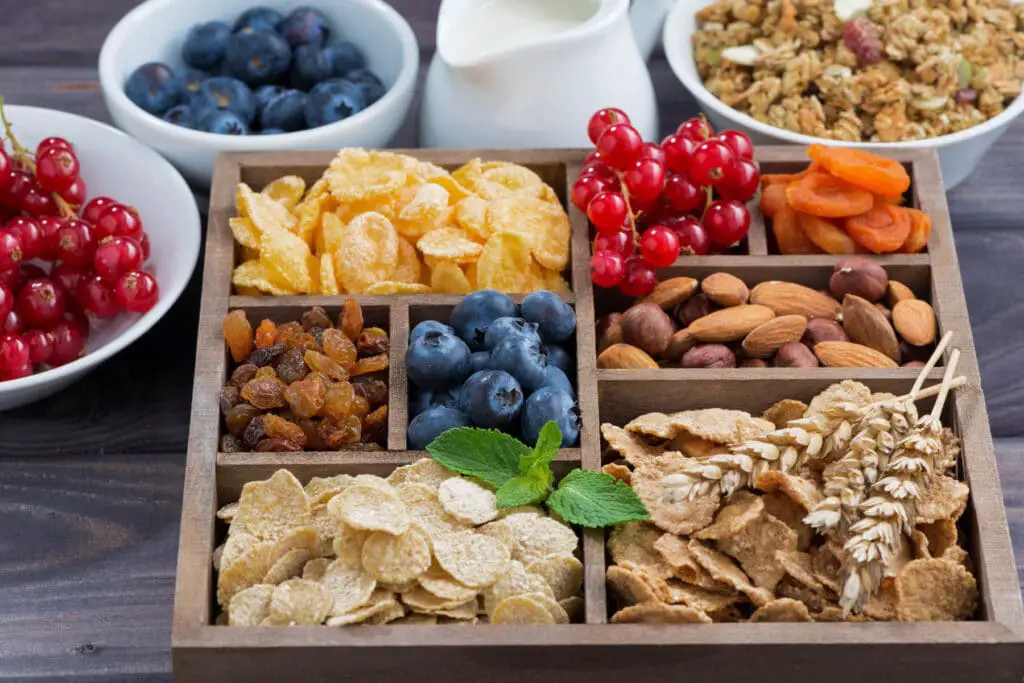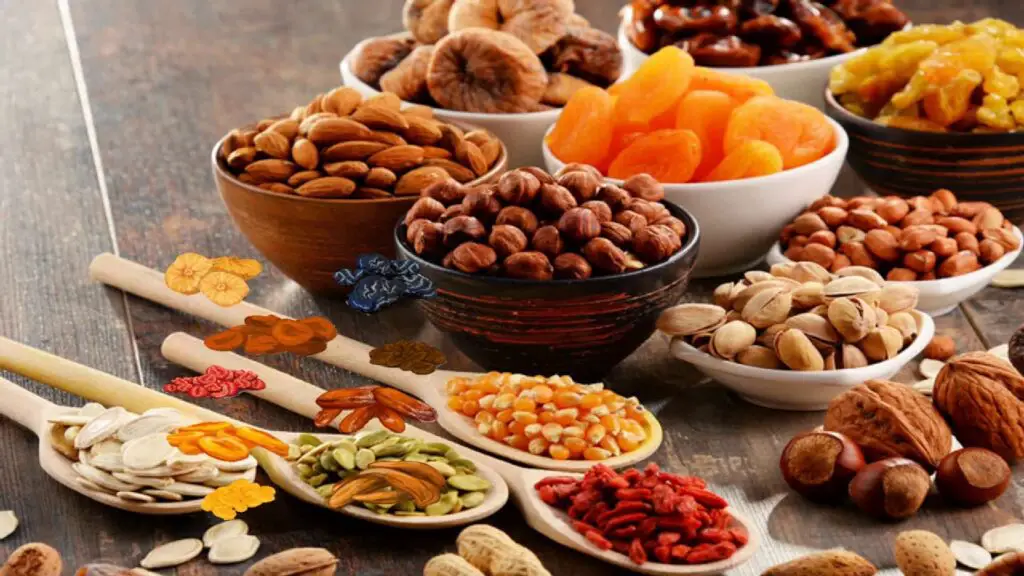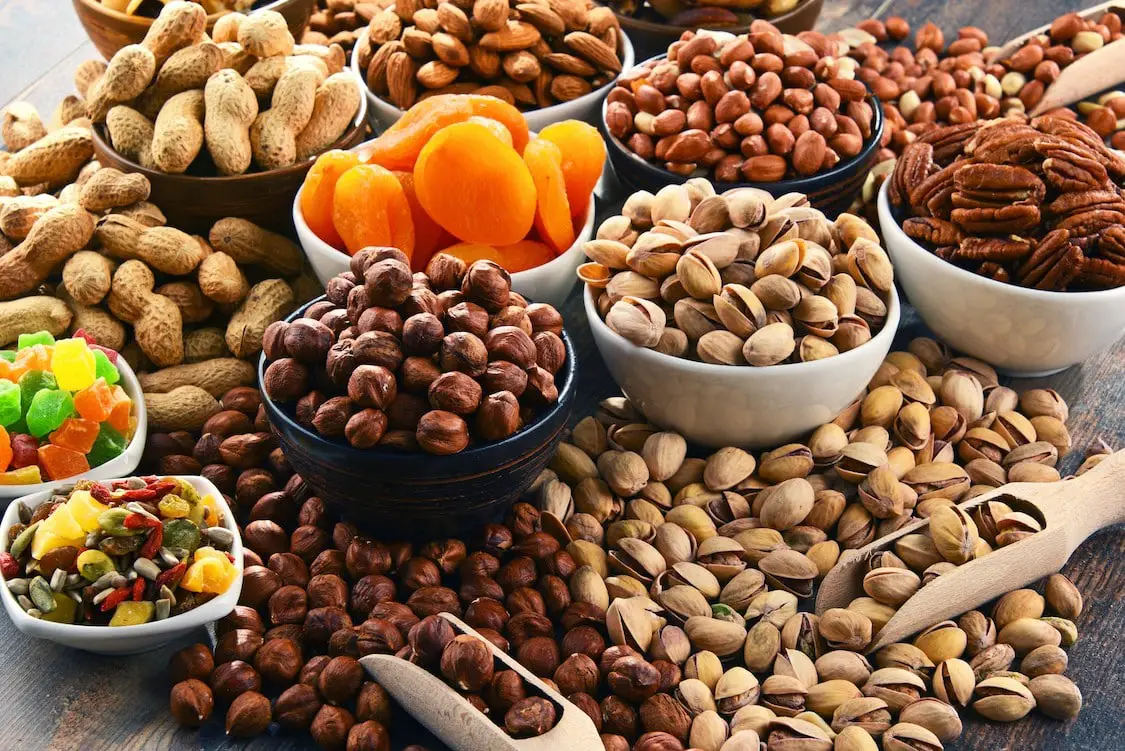Introduction
Is Dried Fruit Good For Weight Loss: Dried fruits, such as raisins, apricots, dates, and cranberries, are essentially fresh fruits that have had their water content removed through dehydration. What remains is a portable, nutrient-dense snack that retains the majority of the original fruit’s vitamins, minerals, and fiber. It’s this combination of nutrients and convenience that has earned dried fruit a reputation as a healthy option for those looking to manage their weight.
One of the key factors that make dried fruit appealing to individuals on a weight loss journey is its high fiber content. Fiber is renowned for its ability to promote feelings of fullness and satiety, which can help curb overeating and reduce calorie intake. Moreover, the natural sugars present in dried fruit provide a quick energy boost without the sudden spikes and crashes associated with refined sugars, making it an excellent alternative to sugary snacks.
It’s essential to approach dried fruit with moderation. While it offers numerous health benefits, it is calorie-dense due to its concentrated sugars. Consuming excessive amounts can lead to an increased calorie intake, potentially hindering weight loss efforts. Portion control is key to reaping the benefits of dried fruit without inadvertently adding excess calories to your diet. Not all dried fruits are created equal. Some varieties are sweetened or coated with added sugars, significantly increasing their calorie content. It’s advisable to opt for unsweetened dried fruits to ensure you’re getting the most nutritional value without unnecessary sugars.

Can you eat dried fruit and lose weight?
Dry fruits can be beneficial for weight loss due to their high protein and fibre content, which can help you to feel satiated while consuming fewer calories. Additionally, they are an excellent source of vitamins, minerals, and plant compounds that can improve your overall health.
Calorie Density: Dried fruits are energy-dense because they lack water content, making it easier to consume a significant number of calories in a short time. If not consumed in moderation, they can contribute to weight gain.
Added Sugars: Some commercial dried fruits have added sugars to enhance their taste, which can increase their calorie content and make them less suitable for weight loss. Always check the ingredients list and opt for unsweetened varieties when possible.
Portion Control: It can be challenging to limit portion sizes when eating dried fruits, which may lead to excessive calorie intake if not careful.
Blood Sugar Spikes: The natural sugars in dried fruits can cause rapid spikes in blood sugar levels, leading to increased hunger and potential overeating later on.
Tooth Decay: Dried fruits are sticky and can adhere to teeth, increasing the risk of tooth decay if not consumed with proper dental care.
Is Kaju good for losing weight?
Yes, Kaju is good for weight loss as it contains magnesium and proteins. Magnesium helps regulate the metabolism of fat and carbohydrates. In addition, the proteins in cashews are suitable for hunger management. As a result, cashews promote weight loss.
Calories: Cashews are calorie-dense, with approximately 157 calories per one-ounce (28 grams) serving. This makes portion control crucial when incorporating them into a weight loss plan.
Healthy Fats: While Kaju contains fats, a significant portion of these fats are heart-healthy monounsaturated and polyunsaturated fats. These fats are known to promote satiety and can be beneficial for weight management when consumed in moderation.
Protein: Cashews offer a modest amount of protein, which can aid in muscle preservation and maintaining a feeling of fullness.
Fiber: They also contain dietary fiber, which contributes to a sense of satiety and supports digestive health.
Vitamins and Minerals: Kaju is a good source of essential nutrients such as magnesium, phosphorus, copper, and vitamins like B6 and K.
Is dry fruit laddu good for weight loss?
These ladoos are sugar-free and rich in fiber & protein that help you feel full for a good part of the day, reduce your cravings and help you in weight loss. Q. Can we feed dry fruits ladoo to children?
Nutrient Density: Dry fruit laddus are packed with essential vitamins, minerals, and antioxidants. They offer a concentrated source of nutrients, including vitamins like B vitamins, vitamin E, and minerals like iron, magnesium, and potassium.
Fiber Content: The dried fruits and nuts in laddus provide dietary fiber, which aids in digestion and helps you feel full, reducing the temptation to overeat.
Satiety: The combination of healthy fats, protein, and fiber in dry fruit laddu can keep you feeling satisfied and curb hunger cravings, potentially leading to reduced overall calorie consumption.
Natural Sweeteners: Many dry fruit laddus use natural sweeteners like honey or jaggery, which are less processed and contain more nutrients than refined sugar. This helps in managing sugar intake while satisfying your sweet tooth.
Energy Boost: Dry fruit laddus provide a quick source of energy, making them an excellent pre- or post-workout snack.
Versatility: Dry fruit laddus can be customized to suit individual taste preferences and dietary needs, allowing you to tailor them to your weight loss goals.
Is Badam good for weight loss?
Almonds contain lots of healthy fats, fiber, protein, magnesium, and vitamin E. The health benefits of almonds include lower blood sugar levels, reduced blood pressure, and lower cholesterol levels. They can also reduce hunger and promote weight loss.
Satiety: The combination of healthy fats, protein, and fiber in almonds can help you feel full and satisfied, potentially reducing cravings for unhealthy snacks.
Nutrient Density: Almonds offer a concentrated source of vitamins, minerals, and antioxidants, contributing to overall well-being while supporting weight loss goals.
Metabolism Support: Some studies suggest that the nutrients in almonds may help boost metabolism, aiding in the burning of calories.
Blood Sugar Regulation: Almonds have a low glycemic index, which means they can help stabilize blood sugar levels and prevent spikes and crashes in energy, potentially reducing the urge to overeat.
Heart Health: The monounsaturated fats in almonds have been linked to improved heart health, reducing the risk of cardiovascular disease—a vital consideration in long-term weight management.
Versatility: Almonds are a versatile food that can be incorporated into various meals and snacks, making it easy to include them in your daily diet.
Is it OK to eat dried fruit everyday?
Dried fruit can boost your fiber and nutrient intake and supply your body with large amounts of antioxidants. However, they are also high in sugar and calories, and can cause problems when eaten in excess. For this reason, dried fruit should only be eaten in small amounts, preferably along with other nutritious foods.
Nutrient-Rich: Dried fruits are packed with essential vitamins and minerals, including fiber, potassium, iron, and antioxidants. Consuming them regularly can contribute to your daily nutrient intake.
Fiber Content: Dried fruits are a good source of dietary fiber, which supports digestive health and helps maintain regular bowel movements.
Convenience: Dried fruits are portable and have a long shelf life, making them a convenient and healthy on-the-go snack.
Satiety: The fiber in dried fruits can promote a sense of fullness, reducing the likelihood of overeating unhealthy snacks.
Natural Sweetness: Dried fruits offer a natural and healthier alternative to sugary snacks and desserts, satisfying sweet cravings without added sugars.
Is Pista good for weight loss?
Are pistachios good for weight loss? A 2020 study suggests that they are. Researchers found that a group of people with overweight or obesity who ate a serving of pistachios every day had a lower body mass index and waist circumference than those who did not eat pistachios.
Calories: A one-ounce (28 grams) serving of pistachios contains approximately 160 calories, making them a calorie-dense food.
Healthy Fats: Pistachios are rich in heart-healthy monounsaturated and polyunsaturated fats. These fats are known to promote satiety and may assist in weight management when consumed in moderation.
Protein: Pistachios provide a moderate amount of plant-based protein, which can help maintain muscle mass and contribute to a sense of fullness.
Dietary Fiber: Pistachios are a good source of dietary fiber, which aids digestion, supports gut health, and helps control appetite.
Vitamins and Minerals: Pistachios contain essential nutrients such as vitamin B6, vitamin K, magnesium, phosphorus, and potassium, which are beneficial for overall health.
Is dates good for weight loss?
Dates can be a healthy to a weight loss diet because they are high in fibre and relatively low in calories. Eating dates can help promote feelings of fullness, regulate blood sugar levels, reduce cravings for sugary snacks, and provide a natural source of energy throughout the day.
Natural Sweetness: Dates can satisfy sugar cravings in a more wholesome way compared to processed sweets and desserts, potentially reducing overall sugar intake.
Fiber Content: The significant fiber content in dates can promote a feeling of fullness, reducing the likelihood of overeating or snacking on less healthy options.
Nutrient Density: Dates offer essential vitamins and minerals, contributing to overall health while pursuing weight loss goals.
Energy Boost: Dates are a quick source of natural energy, making them a suitable pre- or post-workout snack.
Digestive Health: The fiber in dates supports regular bowel movements and aids in digestion, which is crucial for weight management.
How many dry fruits per day?
Having a handful of servings a day, or incorporating nuts, dry fruit and seeds into your salads and desserts is a good way to take in essential vitamins and minerals in your diet plan. The ideal serving size for dry fruits and nuts is about 30 gm, which fits into the palm of your hand.
Caloric Intake:The calorie content of dry fruits varies depending on the type and serving size. To maintain a healthy weight, it’s crucial to monitor your daily caloric intake and ensure that the consumption of dry fruits fits within your overall calorie goals.
Nutritional Requirements:Your nutritional needs depend on various factors, including your age, gender, activity level, and health goals. Dry fruits are nutritious and provide essential vitamins, minerals, healthy fats, and fiber. Consider consulting a healthcare professional or a registered dietitian to determine your specific nutritional requirements and how dry fruits can fit into your diet.
Type of Dry Fruits:Different types of dry fruits have varying nutritional profiles. For example, almonds, walnuts, and pistachios are rich in healthy fats, while raisins and dates are high in natural sugars. Adjust your daily intake based on the specific nutritional benefits you seek and your dietary preferences.
Balance and Moderation:The key to incorporating dry fruits into your daily diet successfully is balance and moderation. Dry fruits can be calorie-dense, so it’s essential to practice portion control. Consider pre-portioning your daily serving to avoid overindulgence.
Physical Activity:If you have an active lifestyle, you may require more calories and nutrients. Dry fruits can provide a quick source of energy and essential nutrients, making them a suitable snack option for active individuals. Adjust your daily intake accordingly.
Dietary Goals:If your primary goal is weight management or weight loss, monitor your calorie intake carefully when consuming dry fruits. While they offer health benefits, excessive consumption can lead to weight gain.

Conclusion
Portion control is crucial when incorporating dried fruit into your weight loss plan. While it offers numerous health benefits, it is calorie-dense due to its concentrated sugars. Overindulging can easily lead to excess calorie intake, which can hinder your weight loss progress. To avoid this, it’s advisable to measure out appropriate serving sizes and stick to them.
Choosing unsweetened dried fruit varieties is essential. Some commercial dried fruits have added sugars or are candied, which significantly increases their calorie content and undermines their health benefits. By opting for unsweetened options, you can enjoy the natural sweetness of the fruit without the unnecessary sugars. Dried fruit can also play a valuable role in curbing unhealthy snacking habits. Its combination of fiber and nutrients can help stave off hunger and cravings, reducing the likelihood of reaching for less nutritious, calorie-laden snacks. As part of a balanced diet, it can serve as a satisfying alternative to processed sweets.
However, it’s essential weight loss is a multifaceted journey that extends beyond individual food choices. A successful weight loss strategy encompasses various factors, including calorie intake, physical activity, and overall dietary patterns. Dried fruit should be viewed as one component of a broader, healthy eating plan.


1 comment
… [Trackback]
[…] Read More on that Topic: thefitnessblogger.com/is-dried-fruit-good-for-weight-loss/ […]